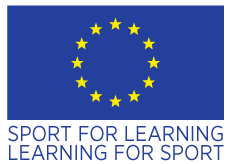OXFORD
Preliminary joint staff training
September 30th to October 4th 2019
The Preliminary joint staff training event lasting 5 days (September 30 to October 4th 2019), held in Oxford (UK) at the Growing Better Lives partner, represented, not only a very important opportunity for the participants to get to know each other and the sharing of experiences, but also the intense and very stimulating and non-repeatable training during the project. The reflections arising from the first exam of the good practices collected in the countries participating in the project, are revolving around the theme of competencies and learning to acquire such competences.
Self-esteem, autonomy, strategic personal planning, decreasing of the negative symptomatology and stereotypes, improvement of sociality, compliance with the rules, these are the objectives the operators working in the field of mental health try to pursue to improve the empowerment of their users. Very often the awareness of the aimed objectives is overwhelmed by the necessity of “doing, acting” and the evaluation of the results is not adequately supported by scientific instruments.
So, it has been considered useful to submit to the operators a working proposal for the oxford seminar an in-depth study of LIFE SKILLS in order to improve and increase their competences. According to the definition provided by WHO/OMS (Division of Mental Health): the Life skills are abilities/capacities that allow to acquire a versatile and positive behaviour, that enable individuals to adapt and deal effectively with the demands and challenges of life. The acquisition and practical acting of life skills can influence the way we relate to others, to ourselves and the way we are perceived by others. Moreover, they contribute to the major perception of one’s own capabilities and to increase self confidence and self-esteem.
The WHO has identified the fundamental core of Life Skills in 10 competences:
Self-awareness; Coping with emotion; Coping with stress; Effective communication; Effective relationship; Empathy; Creative thinking; Critical thinking; Decision making; Problem Solving.
Such competences can be gathered according three domains:
- Emotional (Self-awareness, Coping with emotion, Coping with stress)
- Relational (Empathy, Effective communication, Effective relationship,)
- Cognitive (Problem Solving, Decision making, Critical thinking, Creative thinking).
Seminar Results.
Given the high number of participants to the seminar, the following organization has been adopted:
in the morning, from 9:30 am to 10:00 am arrival of the participants
from 10:00 am to 10:30 plenary session
from 10:30 am to 4:30 pm working groups, lunch break 12:30 pm to 2:00 pm.
The participants were organised in four working groups (A,B,C,D,). Each group was composed of operators from the different partner organisations (IT, SL, RO, DE, UK). The working language was English. To facilitate communication between the participants, each group had several persons knowing English language, able to make as interpreter. In that way all the operators were allowed to participate actively in group work. Each group named a coordinator whose duty was to draw up a synthesis of the work and to present it in the final plenary session.
WORK GROUP A
It tried to create some guidelines useful for the formulation of operational plans by correlating the Life Skills taken into consideration in the sport activities carried out by the operators with their patients. The group also stated some useful indicators to introduce elements of evaluation of the performances achieved.
WORK GROUP B
The working group, starting from the theoretical definition of the Life Skills taken into consideration, tried to trace their contents in the sports activities that the operators practice with their patients. It also formulated a reference grid useful for undertaking targeted planning of activities.
WORK GROUP C
The group gave much space to the narration of the participants' experiences. Given the heterogeneity of the reference framework that emerged from the participants' stories, the group agreed to share information regarding four methodological questions: duration of the activity / good practice; age of participants; their abilities (preserved or not); special needs.
WORK GROUP D
The group has worked on the signification of the Life Skills considered and on the effects they have on both the work with the users, and the operator/user relationship. Finally it has formulated a list of key situations concerning : practicable sports, users, goals taking life skills into account.








